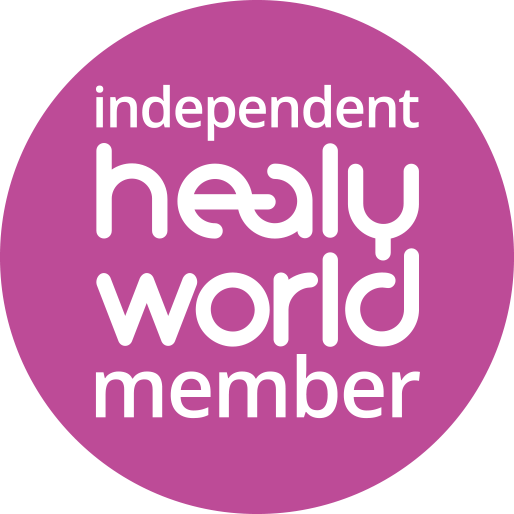In a world where a single click fills your virtual cart, digital consumption can become a trap driven by underlying fears like rejection or FOMO. With Healy, learning how to face your fears becomes accessible. This blog explores how dark patterns in e-commerce fuel unnecessary purchases and how holistic tools like Healy guide you toward conscious decisions, promoting emotional balance and integral well-being.
The Dark Side of E-Commerce: Patterns that Fuel Fear
When browsing online stores, the urge to buy arises from manipulative designs known as “dark patterns,” which exploit emotions like the fear of missing out on deals (FOMO). A 2022 study by Public Eye and the Fédération romande des consommateurs (FRC) analyzed 15 fashion sites in Switzerland, identifying 20 common patterns: suggestions for “matching items” in 13 stores and shipping fees if not buying enough in 10. Platforms like Shein (with 18 patterns) lead this manipulation, followed by Aliexpress, Amazon, and La Redoute. These elements include “low stock” messages and countdown promotions that create a false sense of scarcity, encouraging impulsive buys.
Recent updates, such as an OECD report in 2024, highlight six key dark patterns that manipulate consumer behavior, such as default options that maximize data collection (found in 81% of sites according to a 2024 KnownHost study) and fake timers that pressure quick decisions. Additionally, global governments are intensifying regulations; for example, the FTC reported an increase in deceptive practices in 2024, and in Australia, a 2024 review classified these patterns as manipulative strategies that distort consumer choice, contributing to overconsumption and exacerbating emotional fears.
These elements complicate how to overcome fears and insecurities, making us feel insufficient without the “new.” Healy, through holistic programs, supports you in how to face your fears and resists impulses, fostering conscious choices. For example, Healy’s Mental Balance program harmonizes your emotional energy to interrupt compulsive buying cycles, while research like arXiv studies in 2024 propose computer vision-based detection tools for these patterns, complementing personal approaches like those of Healy.
Impact on Well-Being: From FOMO to Chronic Stress
Digital consumption affects not just finances but mental well-being. Hyperconnectivity generates digital anxiety and chronic stress, according to Psychology and Mind. Constant notifications intensify FOMO, eroding self-esteem and promoting depressive symptoms in young people. Blue light alters sleep, and fragmented attention diminishes concentration. 2024 studies, such as one from the APA, reveal that adolescents spend nearly 5 hours daily on social media, with 41% reporting poor or very poor mental well-being, and correlations with memory problems and academic performance according to McLean Hospital.
Additionally, Pew Research investigations in 2025 indicate that 48% of teens see a negative impact on their generation, an increase from 2022, linked to greater depression, anxiety, and loneliness. A 2024 study in BMC Child and Adolescent Psychiatry and Mental well-being explores how digital media use relates to depressive symptoms, moderated by gender, emphasizing the need for early interventions.
These impacts tie to deep fears: rejection, loneliness, or exclusion. Understanding how to overcome fears and insecurities is essential for control. Healy and its Soul Cycle module, with programs like Happiness and Security, guide you in how to face your fears, cultivating serenity and prioritizing the essential over the material. Digital disconnection strategies, backed by systematic reviews in PMC (2024), show that digital detoxes diminishes anxiety and enhance well-being, aligning with Healy‘s integral approach.
Holistic Strategies for Living with Intention
To break the cycle, cultivate awareness through self-care. Practical strategies include:
- Screen-free zones: Create device-free moments during meals or before bed to minimize digital anxiety, as suggested by a Carter et al. (2016) study associating bedtime use with insomnia.
- Digital hygiene: Weekly evaluate contents that nurture your well-being, eliminating those that fuel FOMO, aligned with Rosen et al. (2013) recommendations for improving cognitive performance.
- Pomodoro technique: Segment the day into focused blocks to enhance concentration and practice how to face your fears of multitasking, backed by evidence in Computers in Human Behavior.
Other effective tactics against FOMO and buying impulses, according to Alliant Credit Union (2023) and Best Egg (2025), include the 24-hour rule before buying, strict shopping lists, and a 10-second pause for reflection. Recognizing that no purchase resolves FOMO long-term, as discussed in Reddit forums (2024), supports break cycles, fostering habits like consolidating wishlists and avoiding window shopping.
Integrating Healy amplifies these benefits. Programs like Learning and Systemic Satisfaction in Healy strengthen mental clarity, while Soul Well-Being assists in how to overcome fears and insecurities, turning impulses into intentional actions. Combined with principles from Harvard Business Review’s psychology of consumption (2002), which emphasize using existing items for greater satisfaction, Healy promotes a lasting relationship with your goods and emotions.
Healy: Your Companion for Facing Impulsive Consumption
Visualize a tool that balances stress and empowers intentional decisions. Healy uses microcurrents to harmonize energy, with programs like Feeling Good and Security that teach how to face your fears against rampant consumption. Using Healy, you achieve calm to resist e-commerce manipulations and focus on what’s truly important, backed by holistic approaches that counteract hyperconnectivity effects identified in Elhai et al. (2017) studies.
Healy acts as an ally in your path to how to overcome fears and insecurities. Its approaches connect you internally, attenuating external stimuli. Expanding its use, modules like Emotions and Soul Well-Being directly address FOMO, fostering serenity and awareness, while research in Journal of Retailing and Consumer Services (2023) links FOMO to compulsive purchases, highlighting the need for tools like Healy to regulate emotions.
Ready to change habits? Explore my website about Healy, schedule a free consultation, and start guiding yourself in how to face your fears today.
Don’t wait any longer to transform your relationship with digital consumption! Discover how Healy can support you how to overcome fears and insecurities and live with greater intention. Explore Healy programs, and schedule a free consultation to begin your journey toward emotional balance. Act now and reclaim your serenity!





